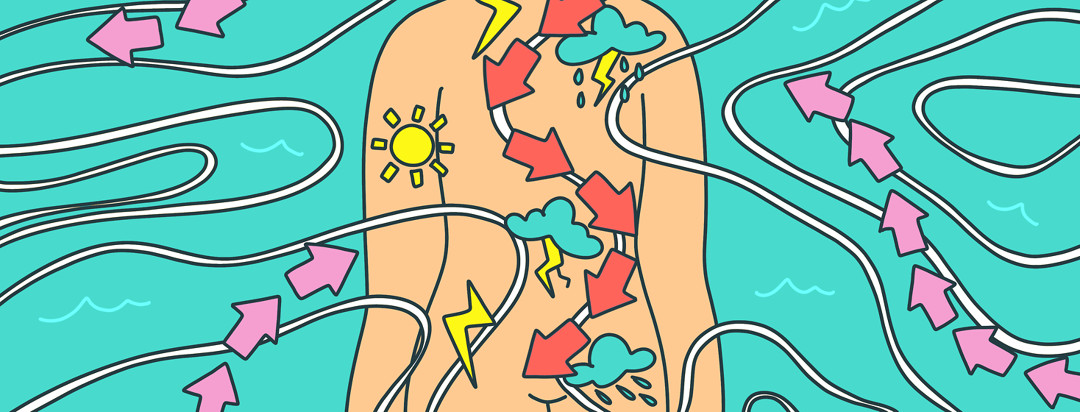Migratory Joint Pain, Curbing the Pain, and a Potential Flare
All my joint problems, pain, or inflammation, have always been "migratory." This type of joint pain occurs with inflammation spreading from one joint to another at a time. In my experience, the first joint starts to feel better as I begin to feel the pain inside another joint. When migratory joint pain starts, it comes suddenly. One morning I wake up, and there is debilitating pain in my left wrist or right knee. In the span of a week, it can move around my entire body, affecting the smallest joints like my knuckles or the largest like my hips.
I experience joint pain in two scenarios:
- I have stressed my body and mind and need rest.
- A flare is coming.
To understand which one is happening, I first need to give it a couple of days. It has taken me 17 years to figure out a "joint pain management plan" and stay on top of it while keeping a positive perspective. I am going to share all of that here.
Curbing joint pain related to lupus
Typically the pain is more severe in the AM. As the day goes by, the severity starts to decrease as I begin to feel stiffness in the next joint, which is the indicator of what joint will be in pain the following day. To curb the pain, for the first couple of days, I use a combination of hot/cold treatment and over the counter anti-inflammatory drugs in conjunction with religious resting. If the issue continues longer than a week, that's my indicator that a flare is coming, I should stop the ibuprofen and instead call my doctor. I call this "curbing the flare," which I explain later. Now let's get into pain management.
1. Hot/Cold treatment
A hot shower first thing in the AM helps relax the muscles around the joint and relieves the stiffness. After loosening up the joint with a hot shower, I put a cold compress on the joint as it helps with decreasing the inflammation. I have a combination of gel ice packs and wraps that I rotate and use depending on the joint's type and location.
2. Over-the-counter anti-inflammatory drugs
I am not a fan of taking NSAIDs such as ibuprofen or naproxen for more than a week. The reason is that they are not the best choice for someone with chronic kidney problems like myself with lupus nephritis. I have discussed this with my doctor, and we have agreed that when such pains start, I take the Ibuprofen for 4-5 days and rest as best as I can. If the pain doesn't go away, I call my doctor for an actual flare management plan.
Curbing the flare
With lupus being a hidden disease and flares sneaking up on you here and there, I sometimes am grateful for these joint pains. I try to find the silver lining in the most painful aspects of the disease to best cope mentally. In the last 17 years, I have learned these pains are typically an indicator of an upcoming flare if they don't go away in a week. That is when I stop the ibuprofen and call my doctor to request an urgent appointment. The reason I say I am grateful for the pain is that they at least show me a sign to be aware and take care of myself and that something wrong is about to happen. I have had flares that came like a tornado from nowhere, shutting down my kidneys and sending me to chemotherapy without any heads-up.
When joint pain comes while other organ functions (in my case kidneys) are still normal, we have time to curb the flare. My doctors typically prescribe a short-term dose of steroids to relieve me from pain. Then we closely monitor all my blood tests to be on top of the disease activity. Typically the steroids calm down the pain and the flare in a month, and I go back to normal and off the steroids. Even though joint pain is debilitating and steroids have terrible side effects, I take them over a major kidney failure.
Community Poll
Do you read through your insurance policies and ask questions?

Join the conversation